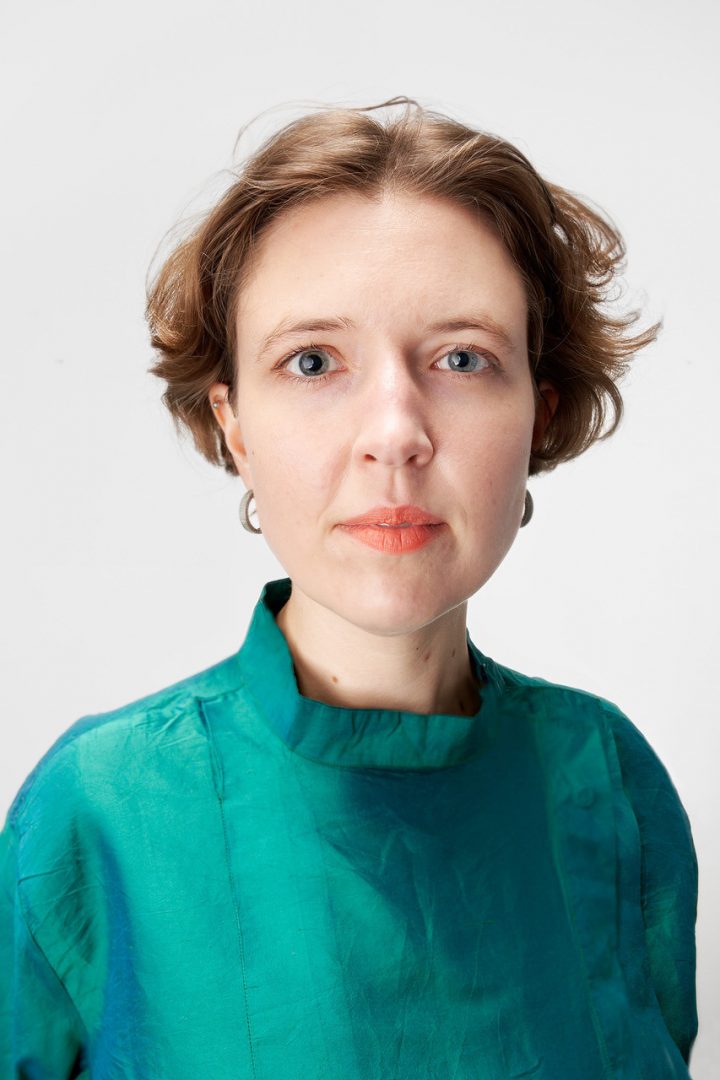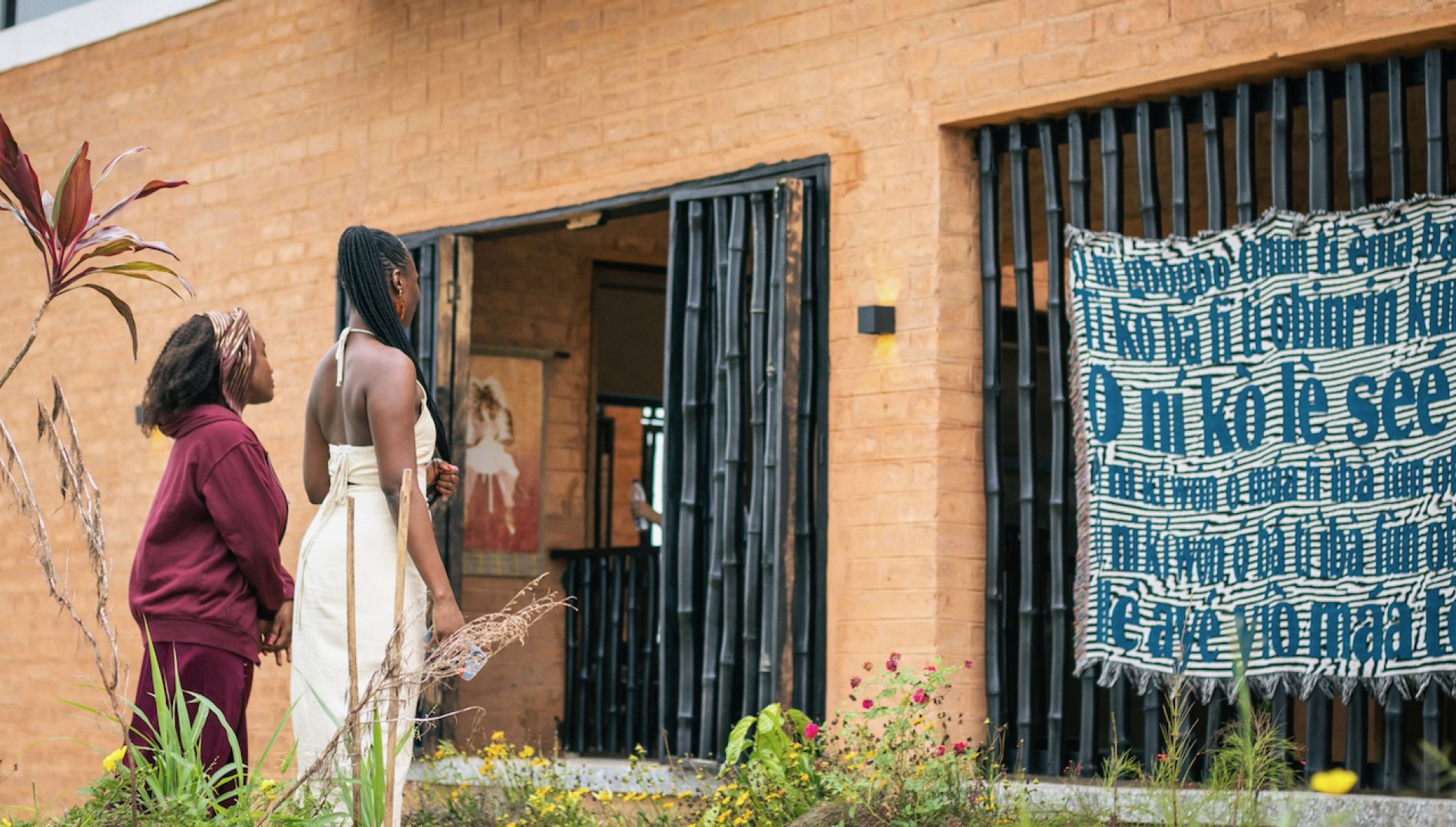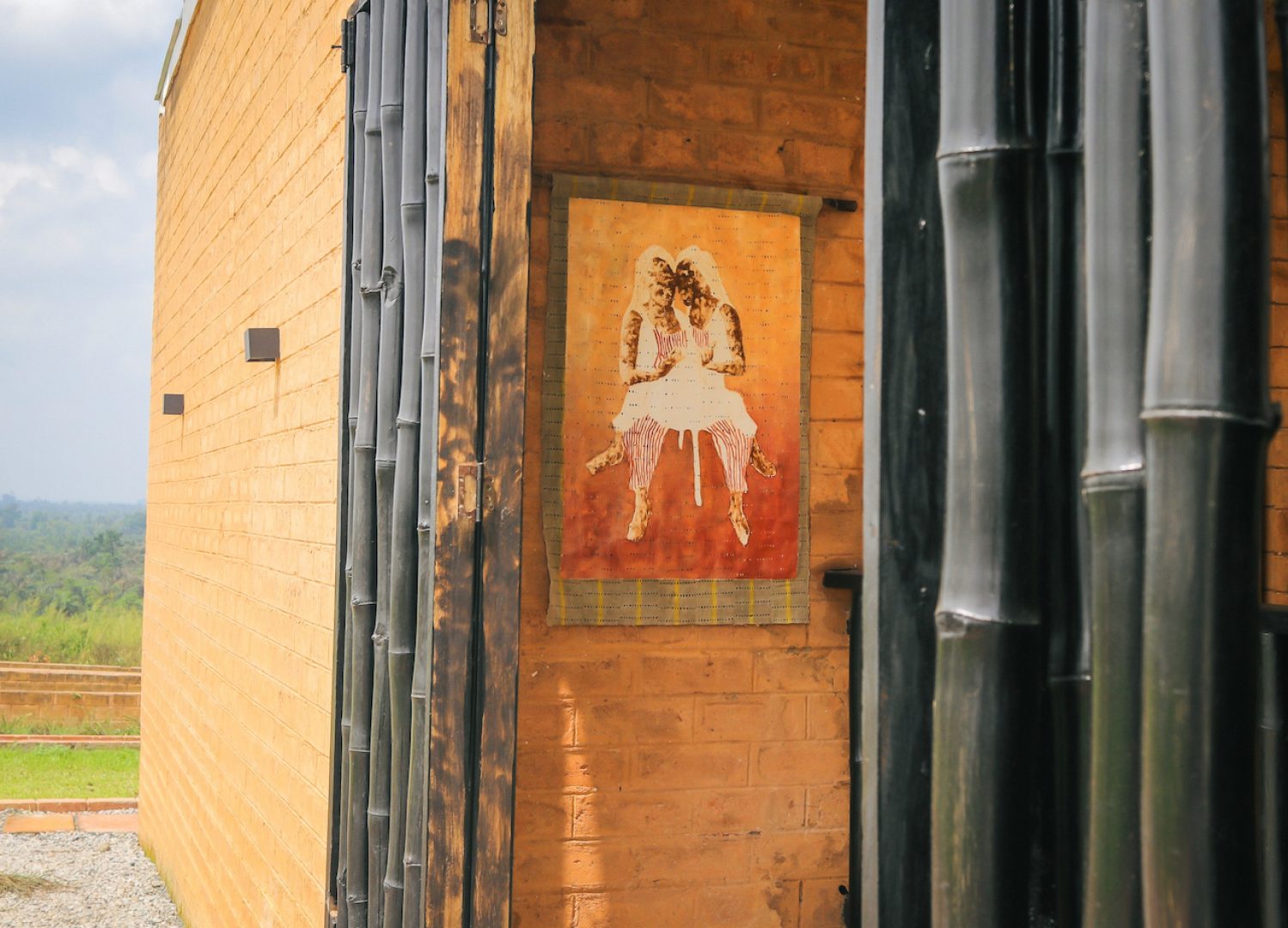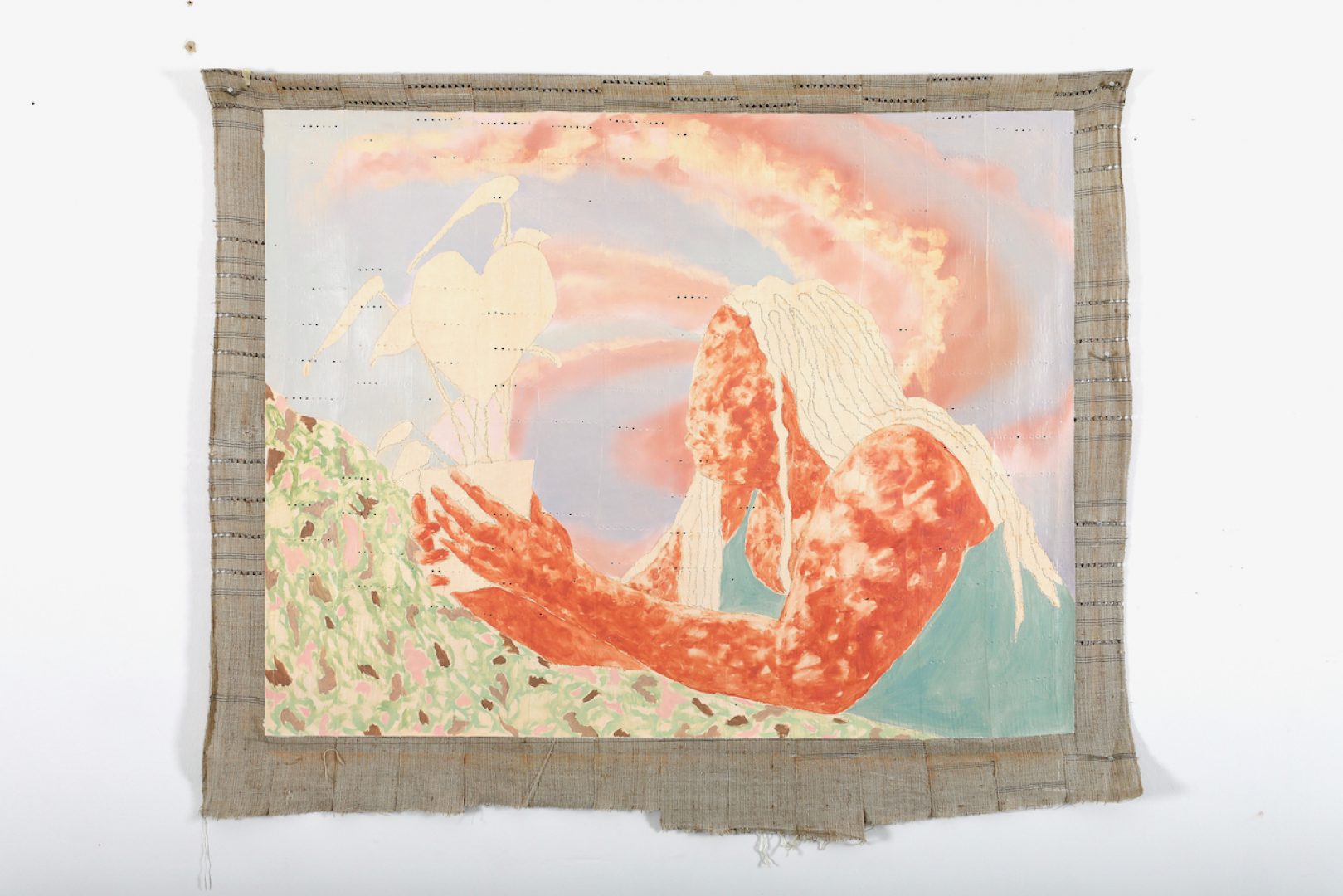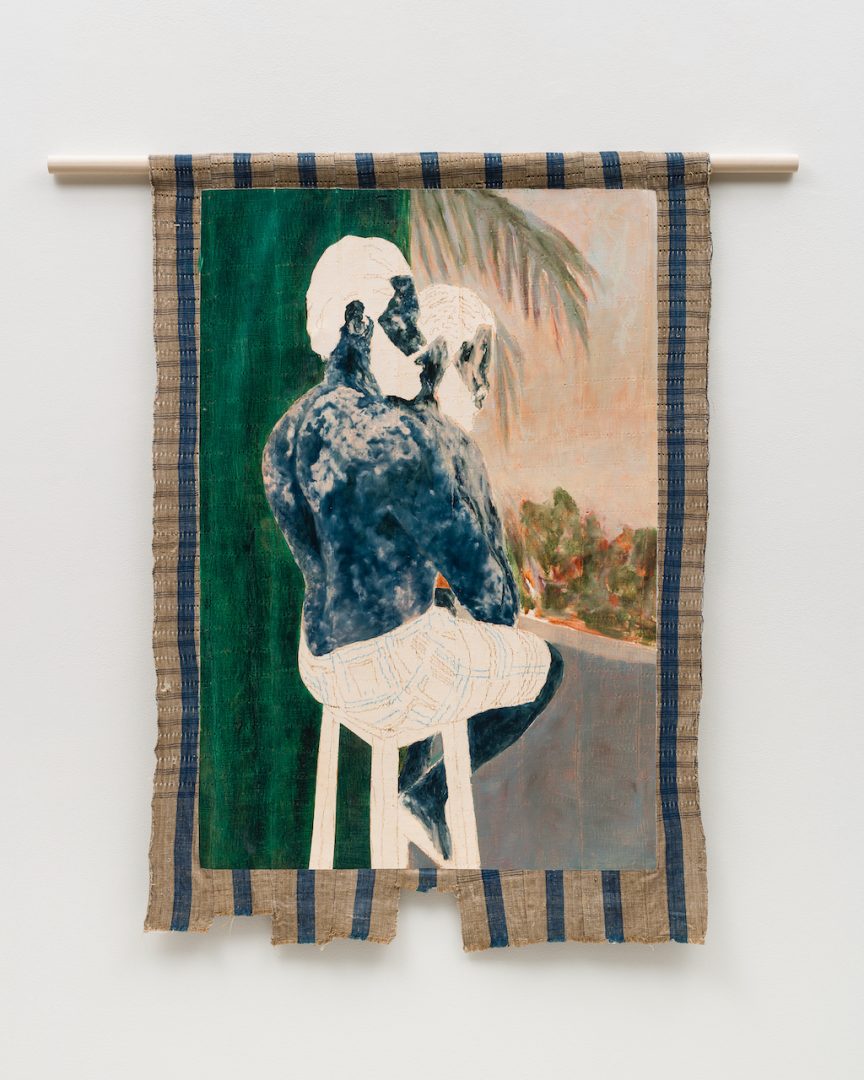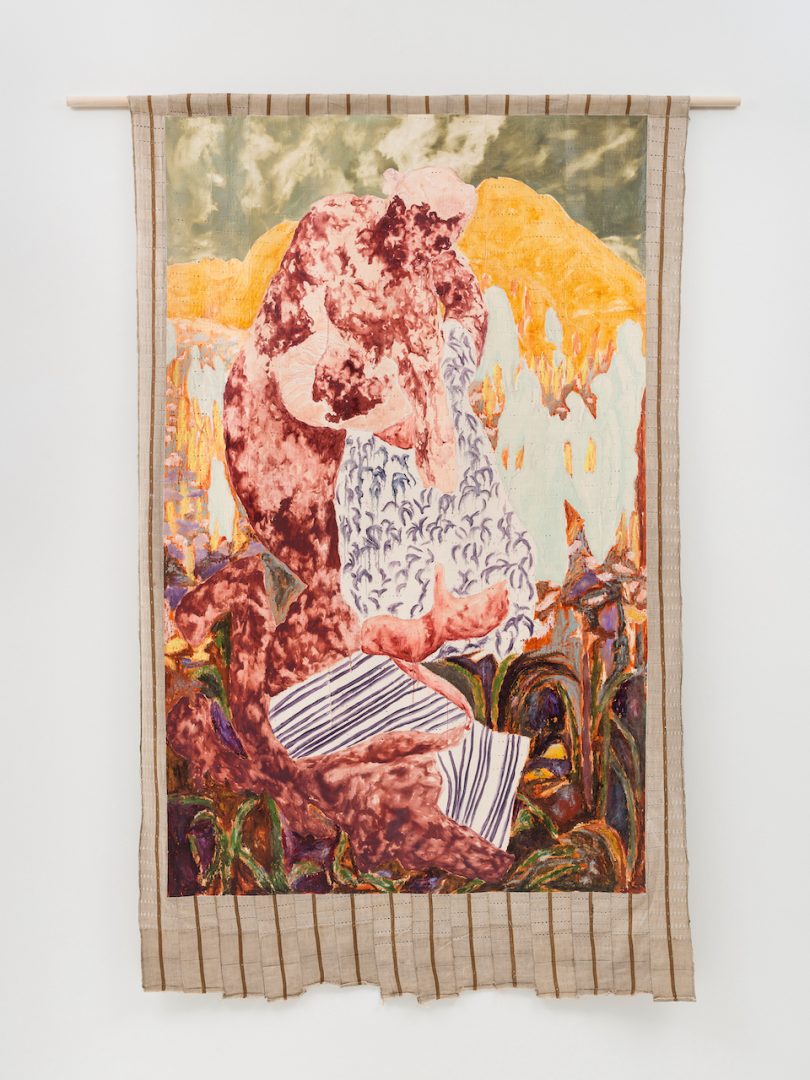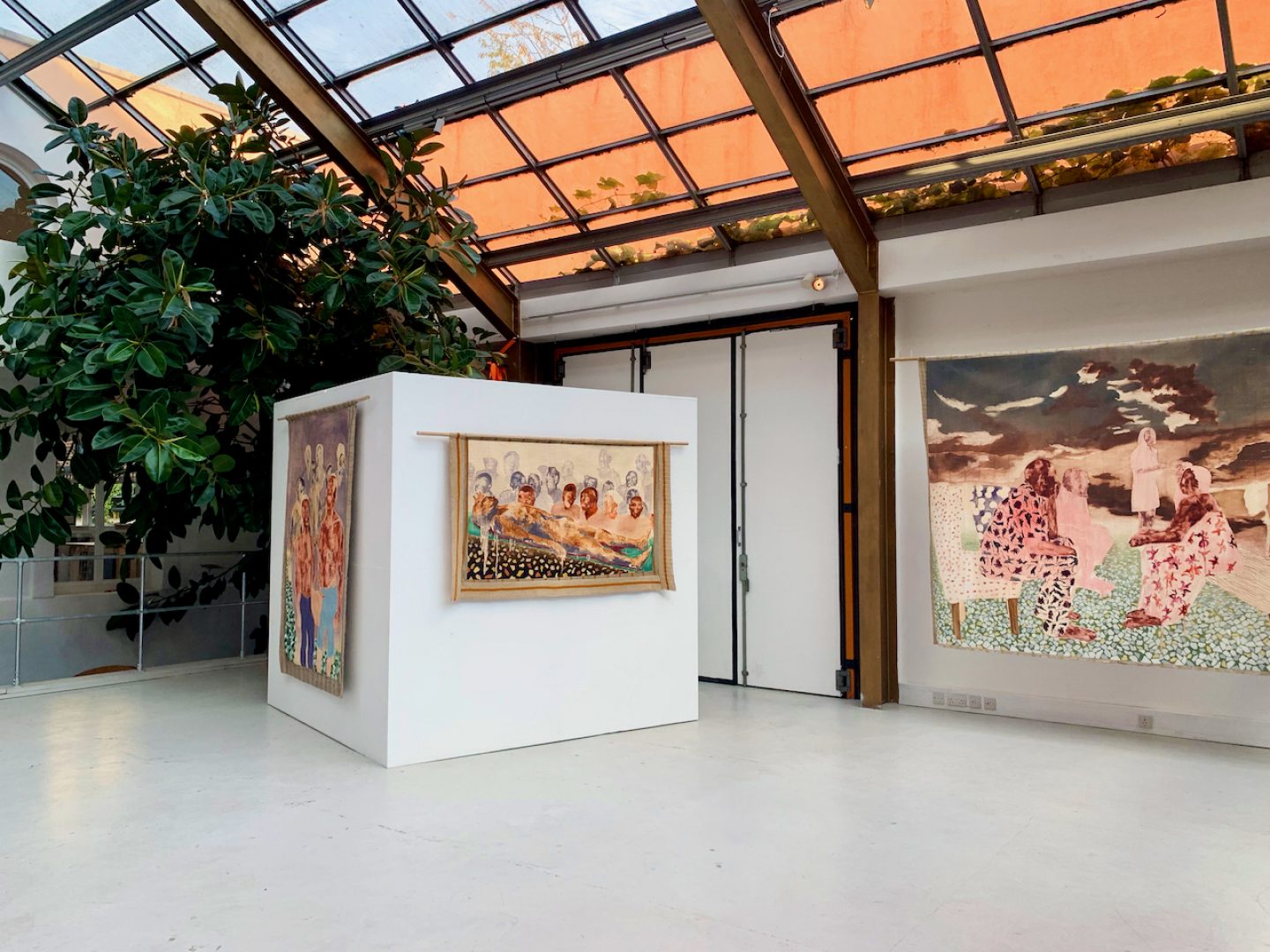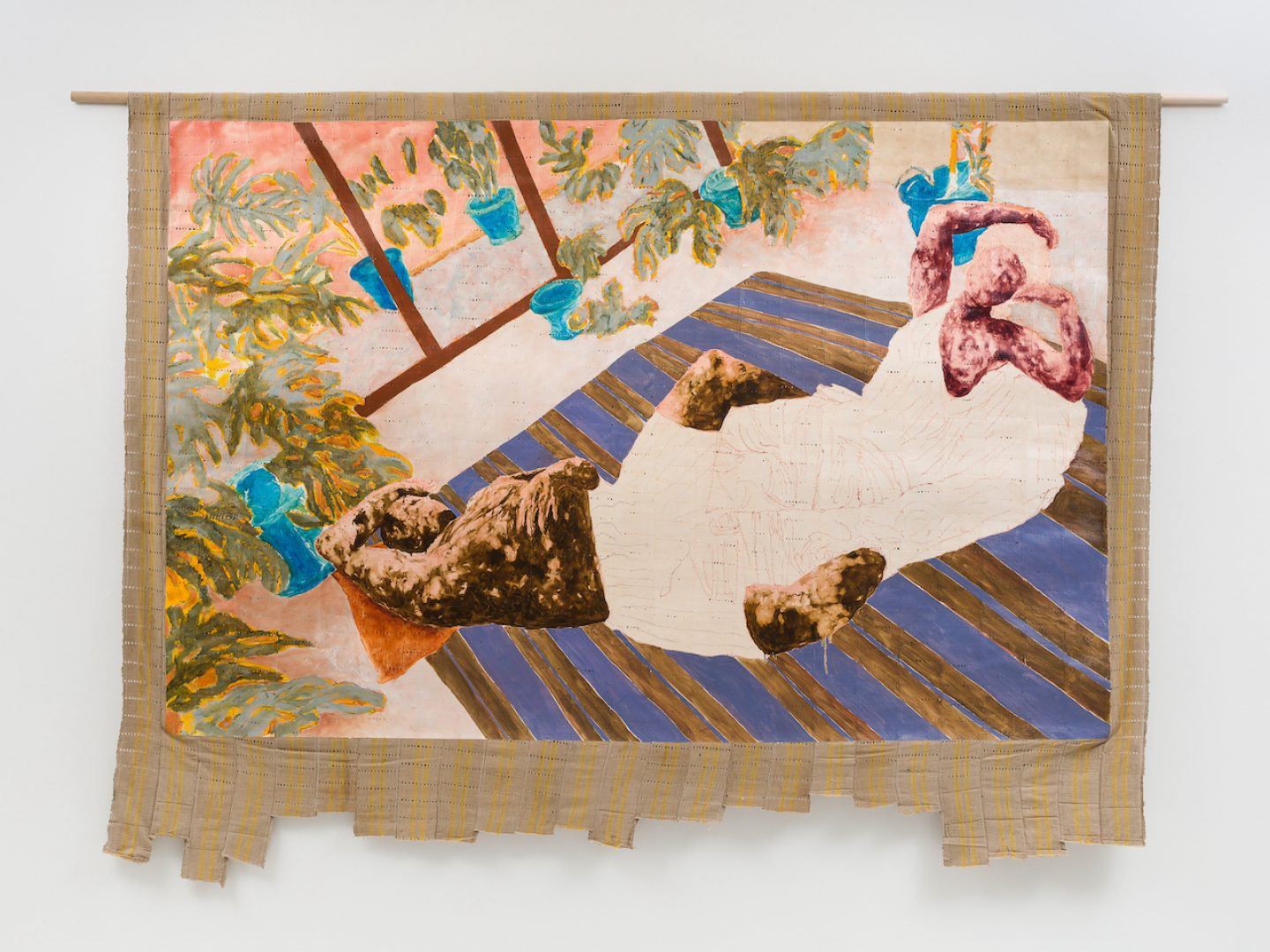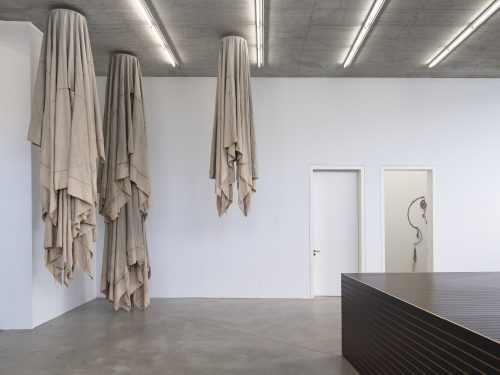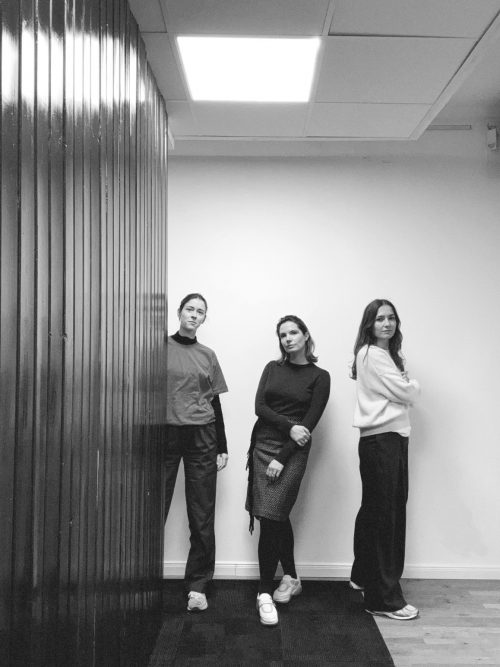
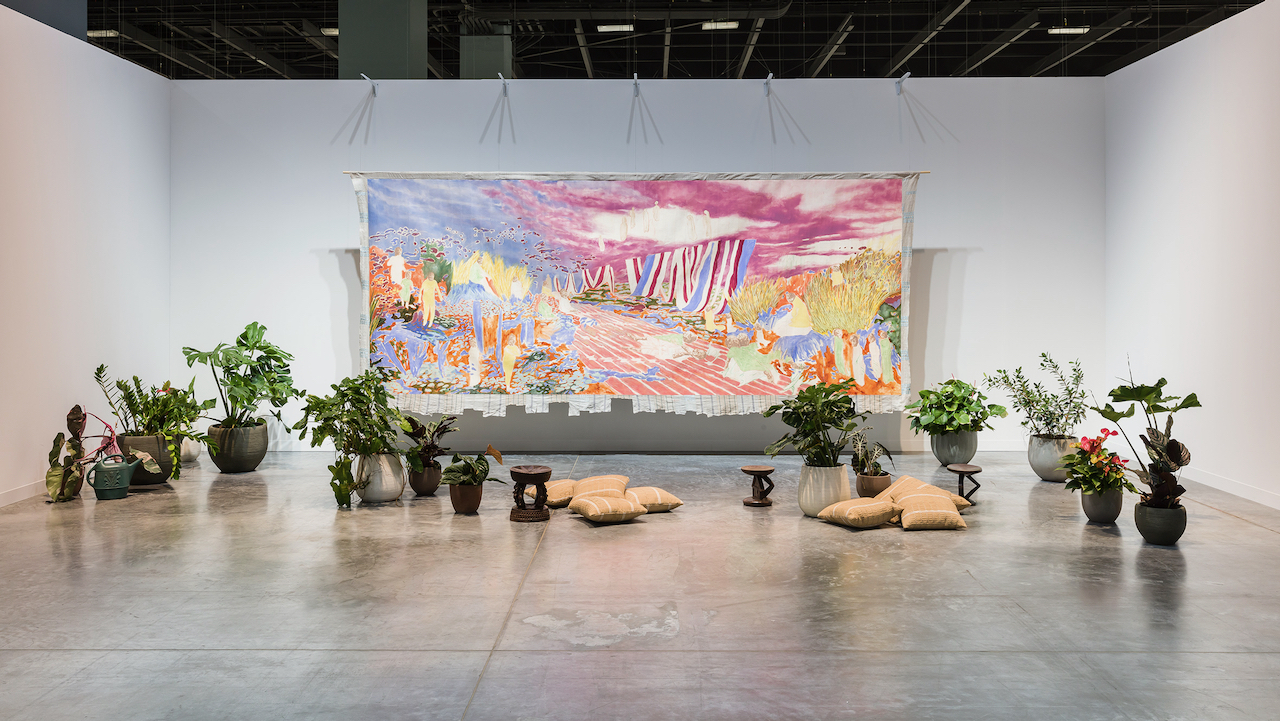
WATCH OUT #4: Miriam Bettin on Nengi Omuku
Project Info
Share on
WATCH OUT is an ongoing series in which curators present young artistic positions that they find exciting. Selected by Yvonne Scheja.
During my research residency in Lagos, Nigeria I got to know Nengi Omuku’s work. Her studio is one of those places in Lagos where you immediately feel at ease by the presence of plants, a well ventilated indoor climate, and a calming and rare view of the sea.
On my first visit in the busy week of Art X Lagos, Omuku was just about to finalize her largest work and first installation to date, Eden (2022), shown a few weeks later at Art Basel Miami. The second time Lagos-based queer activist Matthew Blaise joined our conversation. Both are part of a generation that seeks to confront the still deeply rooted colonial binaries of Nigerian society through community work. After being commissioned a mural in a psychiatric ward in London in 2018, Nengi Omuku founded TAOH (The Art of Healing – Yorùbá: Ona Iwosan), a charitable organization for mental health in Africa.
Omuku’s allegoric figurative oil paintings depict host human and other entities in vivid groups, one-on-one encounters, and double portraits. Trained as a florist and horticulturist by her mother, paradisiacal flora and fauna in earthy warm colors are a recurrent setting for her protagonists, often faceless portraits of friends. As they channel the spirits, the fluid figures tell their own stories of healing and kinship.
In the midst of the rural landscape of Ikise, Ijebu, something between two to five hours from Lagos by car – depending on traffic – where I curated the group exhibition Aso là ́nkí, kí a tó ki ènìyàn – We greet the cloth before we greet its wearer at the G.A.S. Farm House, an architecture by Papa Omotayo, Omuku’s painting Soliloquy (2022) seemed to merge with the reds of the grounds, yet another transformative place that eases the mind.
What I find particularly crucial about Omuku's work is its contribution to a new visibility of pre-colonial traditions. Over the last few years, the artist replaced canvas with unstretched sanyan, a West African fabric made from wild silk, woven in strips, and stitched together. It is a craft that, like so much knowledge from oral tradition, is in danger of being lost. In a workshop in collaboration with Omuku, the hand weaving of aṣọ òkè of the Yorùbá people is to be taught and passed on to the next generations. This reemergence is not only a nostalgic manifestation, but also an urgent attempt to preserve, reflect, and reimagine ancient African crafts, spirituality, and rituals in the context of current discourses of gender, health, and climate.
About Miriam
Miriam Bettin (she/her) is a Cologne based curator and writer with a focus on intersectional queer feminism and postcolonial narratives. She was curatorial fellow at the G.A.S. Foundation in Lagos, Nigeria. Previously, she worked at Kölnischer Kunstverein, where she curated solo exhibitions by José Montealegre and Emma LaMorte with publications and event formats and has contributed to shows such as Daniela Ortiz and Dorothy Iannone. At the Kunstverein Braunschweig, she curated solo presentations of Jasmin Werner, Marvin Luvualu António, and Hannah Weinberger, and worked with artists like Leda Bourgogne and Margaret Raspé. Among her independent projects are group exhibitions at G.A.S. Farm House, Ikise, Nigeria and Galerie Anton Janizewski, Berlin. Regularly, she writes for exhibition catalogs and online magazines such as Conceptual Fine Arts (CFA).
